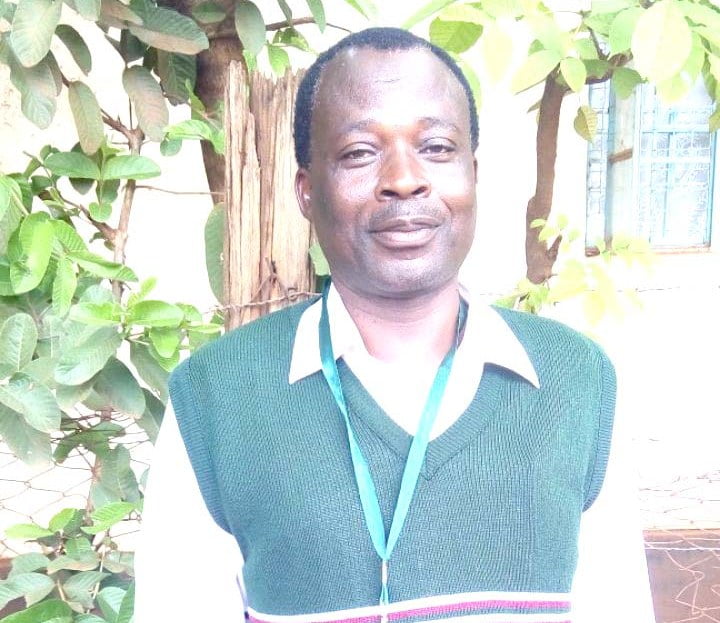By Charles Okoth
At one time, during the last spate of fires, 2016-17, I found myself in a school which was affected.
It was about 9 p.m. An SMS message tone sounded on my phone. The message was from a nephew in Lodwar. He was asking me to urgently check something on Facebook. I rushed to the page, eager to see what this was all about.
There it was; a bright display of fireworks. The caption: (My school) on fire!
Like the biblical doubting Tom, I could not believe it. Yes; I knew the building. But it couldn’t be burning! Why, I had just left the school not long before; and everything was going on fine. I had even, earlier on, mocked some friends and relatives acquainted with schools which had been reduced to rubble – by fire. My school could not go the same way, I had boasted. I gave them tips on how not to have their schools burnt; I even wrote a newspaper article on it, hinging on preventive measures, and urging those who needed further remedial tuition on the subject not to be shy; as a school, we were willing to welcome all for benchmarking!
Photos of the burning building were trending on Facebook. In one of the posts, someone was asking me what was happening. Did my formulae, which I had expounded on so convincingly in my newspaper article, have some parameter that was superfluous, or oddly out of place?
I rushed out. The school could be seen very well from my house. If there was a fire, I would see it plainly.
Yes; the fire was so bright that shadows of nearby trees and buildings could plainly be seen dancing on the walls of my house. As a school, we were, against our worst fears, now enjoined in the dubious roll of shame. Our school would, at long last, gain some space in the national media. The storm we had been hearing about was now at our own doorstep.
Men also cry. And tears stream down just like in children whose age gives them this privilege. You only need to give them enough reason, and they will do the necessary.
I cried. I had enough reason to.
That building was the biggest, most expensive structure on the compound; housing almost a half of the students of the school, a National facility. It was also our flagship project, as it were; our source of pride and prestige. In the day, it shone like a grey pearl speckled with glass. At night, it stood majestic and defiant, like the castle of some haughty knight of antiquity. Anytime I got a relative or acquaintance, I would, under some pretext, take them near the school and point it out. In effect, that one building was the school. Or at least, a deep chest housing the heart and spirit of the school.
What a giant fortress to be laid low by the striking of an insufficient matchsticks by a hand guided by a depraved demon!
I recalled the time it was being built.
I recall the caravans of ten-ton lorries bearing hard-core that trouped in. And those of sand. And those of ballast.
I recall the long trailers bursting with cement and metal bars and pipes. Others came topful with iron sheets and sacks upon sacks of ordinary and roofing nails. And tins and more tins of paint. Then the timber and bars for the roof. Even glass for window and door panes needed its own lorry – crates upon crates of top quality glass. Name whatever is normally required for a building to stand in its majesty, and picture it coming through the gate in lorries; for the building was huge indeed.
I recall the days and months of hard labour, as the building took shape. And the hordes of men and women who toiled and moiled to turn stone and mortar and metal and plain soil into that exquisite architectural wonder.
I recall the elaborate opening ceremony. The crème de la crème of the national and county education officers was there; virtually anybody who was somebody in the ministry of education. Even the lord bishop came – to bless and sanctify the building – sprinkling it with holy water – and dedicate it to the service of mankind.
If it burned down, then the school would be reduced to a shell.
In a jiffy, running most of the way, I found myself in the school compound, and in front of the burning building.
Much of the top floor was on fire; it seemed to have started there.
One terribly annoying thing that struck my sight was the phone video recordings going on, by a host of those who had come to watch the fire. I now knew how information had reached Lodwar, a thousand kilometres away, before getting to me, three hundred metres away. People were not even looking at the fire. Their eyes were glued on their phone screens, as they recorded the inferno for…social media? Posterity? Public edification?
As Achebe would say, me I no know.
Any time a chunk of the roof fell, amidst a fresh outpouring of billows of smoke and flames, there would be a mad rush of these electronic rumourmongers towards the point of action. Everyone wanted a prime position for a prime shot.
I was born and bred a scout. There were some teachers, policemen, and even the local county commissioner, up there in the building, throwing boxes and mattresses and whatever that could be salvaged, out the windows, from parts of the building not yet affected. Together with some brave boys, these leaders managed to clear the first and ground floors, saving lots of students’ belongings.
I confess I did not climb up. But I marshalled the boys, who were also just watching the inferno, to remove the mattresses and boxes to a point far from the area under threat. I also instructed them to fetch, as quickly as possible, any troughs they could get, and draw water from the giant school tanks to help fight the fire. Everybody got busy and active, except the outsiders who were recording busily, getting in the way, and even attempting to steal the poor boys’ belongings.
In the course of it all, I wondered if anybody had called the fire brigade. I had remembered to carry my own torch, and started to feverishly look for the principal. I noticed the man standing somewhere in the crowd, most likely overwhelmed; probably not believing what he was seeing. It had been such a peaceful term; then suddenly, this!
“Have we called the fire brigade?” I had to ask the question twice, and physically shake him, before he came to himself. I could imagine the turmoil that was in his mind. It was not easy to find one’s mental coordinates in such a situation.
“Yes, Madam. Talking to me? What did you say?”
(Madam…? I am a man! I confess I don’t speak like the tenor president; no.)
“It’s me, sir. I was asking if the fire fighters have been contacted.”
“Oh…I see. Are they coming? Where is the deputy? Have you seen him?”
I rushed off and left him in his nightmare. But, mewonders, who can blame him? When suddenly, the chief executive of a school is faced with such a scenario, can they really be expected to take full charge and responsibility? I quietly exonerated him. The head teachers of the schools which burn feel something in their hearts and minds which cannot be appropriately expressed in words. It is a trauma that needs time and resilience to heal.
But in our case, the Deputy County Commissioner had taken up issues. Apart from assessing the situation so as to come up with a plan of action, he had instructed an officer under him to call the fire fighters. Incidentally, there seemed to be no response from the county headquarters. The nearest was Mumias Sugar fire engine.
The DCC proved a wonder. Up to date, I hold them in utmost awe. Whoever trains them should have their salary doubled and trebled.
Look, here was an officer of that calibre, experiencing that sort of thing in his area of jurisdiction. And what did he do? Give orders? Summon help from yonder? Go berserk? Shout?
Not he. Apart from ordering his junior to call the fire fighters, he rushed to the place on foot (it was not far from his house), hotly followed by his askaris and juniors. When he arrived there, he quickly assessed the situation, saw the safe way of salvaging students’ items, and informed his men that he was going in. It wasn’t an order for them to do the necessary; he just told them where he was going, and what he was going to do there. And he went!
“Mkubwa ako wapi?”
It was his assistant, I think, who asked that, when he traced the askaris.
“Ako ndani,” an askari answered.
“Ndani? Na nyinyi bado mko hapa?”
“Mkubwa, hajatwambia…”
“Okay, bakini hapo.”
With that, the junior rushed into the burning building, closely followed by the askaris and other junior staff from the Sub-county Office. They suddenly saw the sense in following their senior in.
I learnt several lessons that day.
One: leadership. It is not a must to give orders and instructions. It is sufficient to lead from the front. Show the way. Your juniors will follow. If you point out the way, and you don’t take the same way, it is not fair to expect others to go the same way. The officer getting into that building was the much needed game changer. And that was how lots of things were saved.
Two: I also learnt that there is an unexpressed attachment of the teachers and students to their school. The sense of pride when all is well, and loss when such a thing as a fire happens, cannot be gainsaid. That was revealed by the shameless tears I saw shed that day. People were just crying. They had to; what they were seeing was unbelievable, and excruciatingly painful.
The third thing I learnt was that in the midst of all that entropic pandemonium, it helps greatly for some people to be sober. I am talking here of people who can make sober decisions – and cause others to act. Cry by all means; but as tears flow, walk or run around and do something to help alleviate danger and/or destruction. I recall a case in Kimilili when we saved the lives of boys who were sick, when a dorm burnt.
And fourth: do schools have the phone numbers of fire fighters within their vicinity? Such a number should be prominently displayed, where anybody can see. Every member of a school community should have it in their mind that whenever such a thing happens, calling the number(s) is an emergency, and not an administrative, action.
And I learnt that day that my County had no fire-fighting capacity. Has inefficiency and negligence been like this? Does it mean no fires are expected? Nonsense!
What the national government should do is to approve a county government budget ONLY IF CERTAIN THINGS ARE CATERED FOR IN THE BUDGET ESTIMATES. Such must include fire-fighting equipment that can make a county have the capacity to fight fires.
May our schools stop burning. That is my prayer for today.
Mr. Okoth is a retired high school teacher based in Busia County






